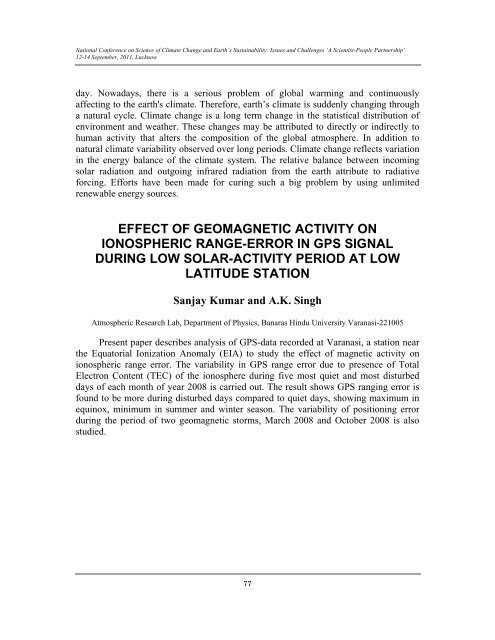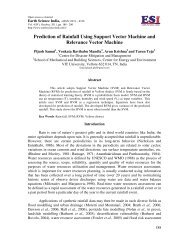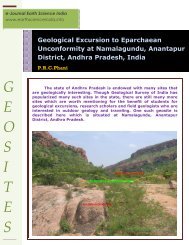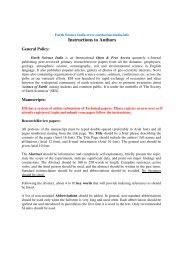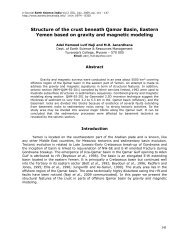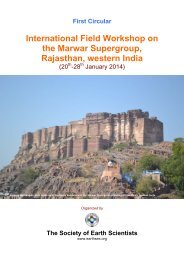12-14 September, 2011, Lucknow - Earth Science India
12-14 September, 2011, Lucknow - Earth Science India
12-14 September, 2011, Lucknow - Earth Science India
You also want an ePaper? Increase the reach of your titles
YUMPU automatically turns print PDFs into web optimized ePapers that Google loves.
National Conference on <strong>Science</strong> of Climate Change and <strong>Earth</strong>’s Sustainability: Issues and Challenges ‘A Scientist-People Partnership’<br />
<strong>12</strong>-<strong>14</strong> <strong>September</strong>, <strong>2011</strong>, <strong>Lucknow</strong><br />
day. Nowadays, there is a serious problem of global warming and continuously<br />
affecting to the earth's climate. Therefore, earth’s climate is suddenly changing through<br />
a natural cycle. Climate change is a long term change in the statistical distribution of<br />
environment and weather. These changes may be attributed to directly or indirectly to<br />
human activity that alters the composition of the global atmosphere. In addition to<br />
natural climate variability observed over long periods. Climate change reflects variation<br />
in the energy balance of the climate system. The relative balance between incoming<br />
solar radiation and outgoing infrared radiation from the earth attribute to radiative<br />
forcing. Efforts have been made for curing such a big problem by using unlimited<br />
renewable energy sources.<br />
EFFECT OF GEOMAGNETIC ACTIVITY ON<br />
IONOSPHERIC RANGE-ERROR IN GPS SIGNAL<br />
DURING LOW SOLAR-ACTIVITY PERIOD AT LOW<br />
LATITUDE STATION<br />
Sanjay Kumar and A.K. Singh<br />
Atmospheric Research Lab, Department of Physics, Banaras Hindu University Varanasi-221005<br />
Present paper describes analysis of GPS-data recorded at Varanasi, a station near<br />
the Equatorial Ionization Anomaly (EIA) to study the effect of magnetic activity on<br />
ionospheric range error. The variability in GPS range error due to presence of Total<br />
Electron Content (TEC) of the ionosphere during five most quiet and most disturbed<br />
days of each month of year 2008 is carried out. The result shows GPS ranging error is<br />
found to be more during disturbed days compared to quiet days, showing maximum in<br />
equinox, minimum in summer and winter season. The variability of positioning error<br />
during the period of two geomagnetic storms, March 2008 and October 2008 is also<br />
studied.<br />
77


